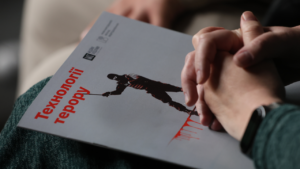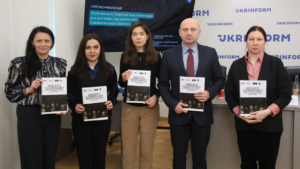Ukrainian Courts Massively Deny Online Access to Their Hearings — MIHR’s Analytics

Only three out of 45 petitions submitted by MIHR for online court broadcasts were granted. This is stated in the analytics report presented by MIHR today. MIHR experts emphasize that the lack of online access to hearings significantly limits opportunities for public monitoring of courts, which is critically important during wartime.
According to Valeriia Rybak, director of the NGO “Human Rights Vector,” the first court broadcasts in Ukraine began during trials related to the Revolution of Dignity:
“The conditions of total distrust in the judiciary created a demand for openness and access to justice. At that time, we proposed broadcasting court proceedings for journalists and the public. This practice started in 2015. On June 3, the first online broadcast of a hearing took place in the Sviatoshynskyi court. The media were in adjacent halls, where they could observe the trial in real-time.”
Rybak noted that the first online court broadcast on YouTube took place on July 6, 2015.
According to Hanna Rassamakhina, the author of the report and head of the War and Justice Department at MIPL, online broadcasts of court hearings are extremely important in the context of the Russian-Ukrainian war. This is because most war crime trials take place in absentia, meaning without the presence of the accused. In such cases, public oversight enhances the quality of proceedings and reduces the risk of these verdicts being challenged in international courts.
At a time when the Ukrainian judicial system is handling a vast number of cases related to Russia’s armed aggression against Ukraine, online broadcasts are one of the few effective ways to ensure public oversight of justice.
Between October and December 2024, MIHR submitted 45 petitions to courts requesting online broadcasts of hearings. Out of these:
- 22 courts did not review the petitions,
- 15 were rejected,
- 5 were denied due to reasons beyond the courts’ control.
Only three petitions were granted, and broadcasts took place in just two cases—accounting for only 4% of all requests. The most common reasons for denial were “security concerns for participants” and “lack of public interest.”
“The conclusion is clear and indisputable: petitions for online broadcasts are mostly denied or not considered at all. Judges do not assess the public interest in cases and fail to recognize the importance of judicial transparency. This significantly narrows the scope for justice monitoring overall, as well as for monitoring our specific categories of crimes. In our opinion, this has negative consequences for society,” emphasizes Hanna Rassamakhina.
Additionally, MIHR analyzed 56 rulings from the Unified State Register of Court Decisions regarding online broadcasts of criminal case hearings. Of these, courts granted 19 requests—approximately one-third.
More details, findings, and recommendations can be found in MIHR’s analytical brief, “Not of Interest: (Un)Availability of Court Hearings Online Broadcasts,” which will be published soon.
Anastasiia Loza, Communications Manager at MIHR
The event was supported by the project “Transformational Recovery for Human Security in Ukraine,” funded by the Government of Japan and implemented by the United Nations Development Programme (UNDP) in Ukraine.







